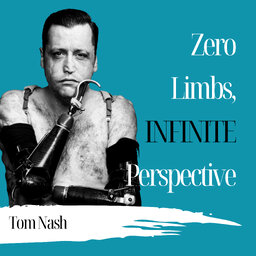Why Bad Bosses Are Ruining Everything (And How AI Might Fix It) | Bailey Parnell - 880
Righto team, today’s episode is one for the world of 2025. We’re talking digital well-being, leadership, and AI with the brilliant Bailey Parnell... because let’s be real, tech is changing the way we think, work, and even lead, and not always for the better. Bailey is an expert in how social media and AI impact our mental health, decision-making, and emotional intelligence, and she’s got an insight or two into how we can take back control. We’re unpacking why bad leadership is so damn common (and how AI might actually help), what social media is doing to our ability to think for ourselves, and whether we’re all just running a race we never signed up for in this hyper-connected world.
If you’ve ever felt overwhelmed by the constant noise or wondered if you’re the one steering the ship (or if the bloody algorithm’s got the wheel) this one’s for you.
SPONSORED BY TESTART FAMILY LAWYERS
Website: testartfamilylawyers.com.au
BAILEY PARNELL
Website: baileyparnell.com
TIFFANEE COOK
Linktree: linktr.ee/rollwiththepunches/
Website: tiffcook.com
LinkedIn: linkedin.com/in/tiffaneecook/
Facebook: facebook.com/rollwiththepunchespodcast/
Instagram: instagram.com/rollwiththepunches_podcast/
Instagram: instagram.com/tiffaneeandco
 Roll With The Punches
Roll With The Punches


